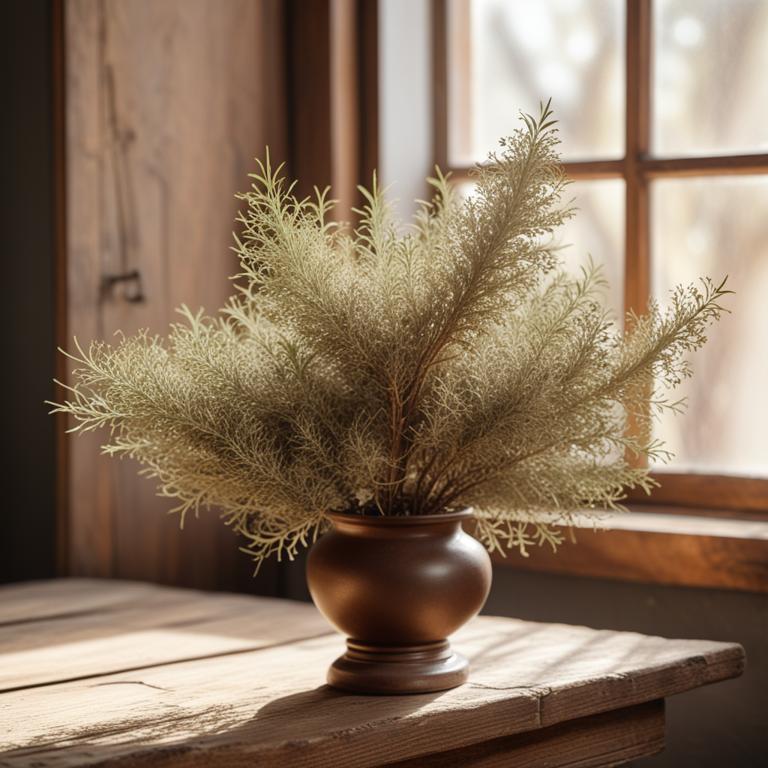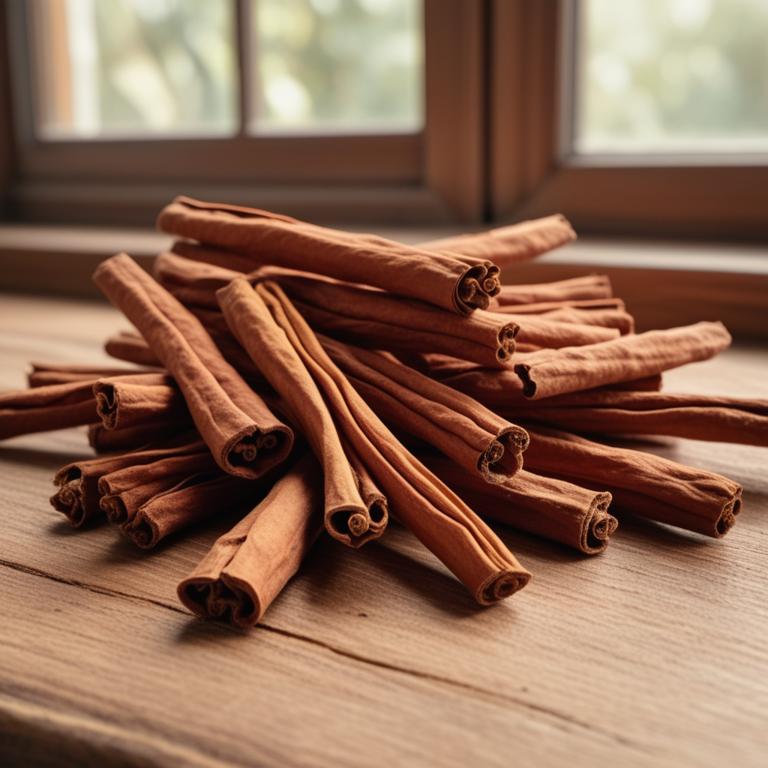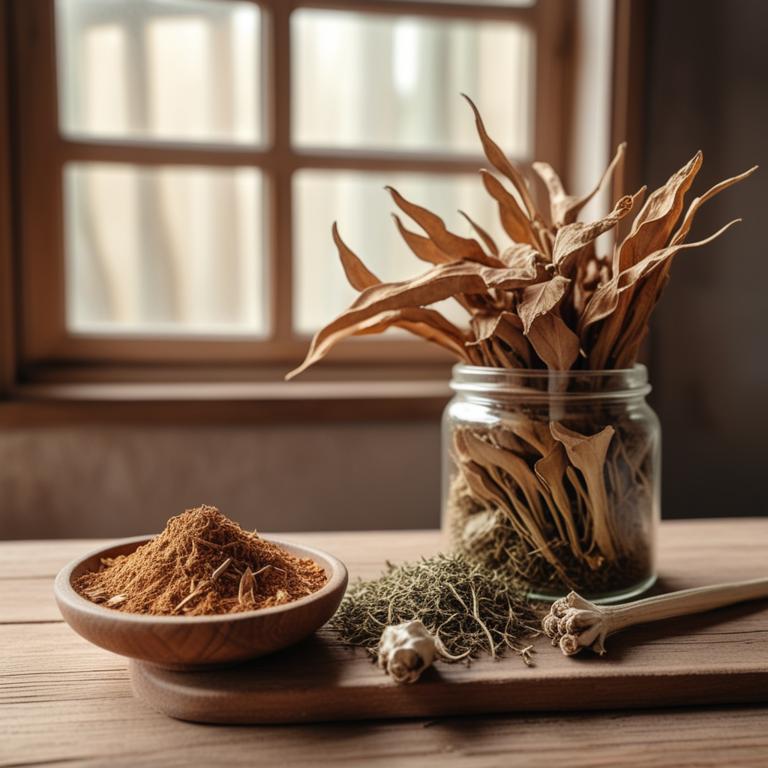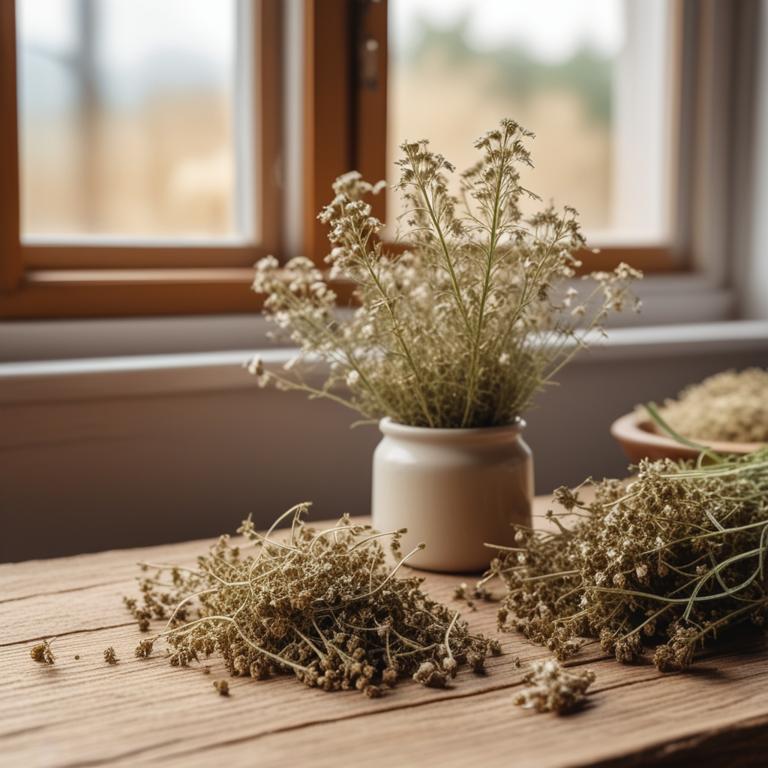Updated: Dec 1, 2024
Natural Remedies for Foot Odor Using Medicinal Herbs

Foot odor is a common problem that can affect anyone's life.
It's embarrassing and can make you feel self-conscious about wearing open-toe shoes or going barefoot in public. But what causes it?. Foot odor is usually due to the sweat on your feet, which creates an ideal environment for bacteria to grow. As the bacteria break down the sweat, they produce a strong-smelling compound that can be really unpleasant. To combat foot odor, you can try using herbal remedies. Certain herbs have natural antifungal and antibacterial properties that can help control the growth of bacteria and fungi on your feet. Tea tree oil, for example, is known for its ability to fight off infections and reduce inflammation.
You can add a few drops of tea tree oil to a foot bath or mix it with water to create a spray that you can use to clean your feet. Another herb that can help with foot odor is neem. Neem has been used for centuries in traditional medicine to treat various skin conditions, including fungal infections. You can use neem oil to create a foot soak or add it to your foot powder or spray. Some people also use neem leaves to make a tea that they can soak their feet in. You can also try using lavender oil, which has a soothing effect on the skin and can help reduce sweat. Chamomile tea is another option, as it has anti-inflammatory properties that can help calm irritated skin. To use these herbs, you can make a foot bath by mixing the herbs with water and soaking your feet in it.
You can also add the herbs to your foot powder or spray to keep your feet fresh and odor-free throughout the day.
Table of Contents
What causes foot odor?
The main causes of foot odor are a combination of natural processes and infections.
Hyperhidrosis, which is excessive sweating, is one of the main causes. This condition occurs when the sweat glands in your feet produce more sweat than usual, creating an ideal environment for other factors to contribute to foot odor. Sweat itself is not the main culprit behind foot odor, but it plays a crucial role. When sweat mixes with bacteria on the skin, it breaks down into compounds that give off a strong smell. Bacteria are responsible for the majority of foot odor.
They thrive in warm, moist environments and feed on sweat, causing it to decompose and release strong-smelling compounds. Fungus, particularly athlete's foot, is another contributing factor. This infection occurs when fungus grows on the skin, especially between the toes, and causes a fungal infection. The fungus breaks down sweat and skin cells, releasing a strong odor. Athlete's foot itself is a fungal infection that causes foot odor.
It's often caused by a combination of factors, including sweaty feet, walking barefoot in public places, and wearing shoes that don't breathe well.
What benefits are derived from using herbs to mitigate foot odor?
Using herbs for foot odor can be a game-changer for people who struggle with smelly feet.
One of the main benefits is that herbs have natural antibacterial properties, which help kill the bacteria that cause foot odor. These herbs can also help reduce moisture on the skin, creating an environment that's less conducive to bacterial growth. Additionally, some herbs have anti-inflammatory properties, which can soothe and calm irritated skin.
This can be especially helpful for people who experience foot irritation or blisters. Herbs can also be used as a natural deodorizer, providing a fresh and clean scent that lasts all day. Moreover, using herbs to combat foot odor is a chemical-free and gentle solution that won't dry out your skin or cause any irritation.
This makes them a great alternative to commercial foot sprays and powders that can be harsh on skin.
What are the primary medicinal herbs for curing foot odor?

Herbs have been used for centuries to combat foot odor.
Melaleuca alternifolia, also known as tea tree oil, contains a compound called terpinen-4-ol, which has antimicrobial properties. This helps to kill bacteria that cause foot odor, keeping your feet fresh. Cymbopogon citratus, or lemongrass oil, has a citrusy scent that repels bacteria, making it hard for them to multiply and cause odor.
Zingiber officinale, or ginger, has anti-inflammatory properties, which reduce irritation and redness between the toes, a common area where foot odor occurs. Lavandula angustifolia, or lavender oil, has a calming effect, but it also has antiseptic properties that help to prevent the growth of bacteria. Cymbopogon nardus, or citronella oil, has a strong scent that repels mosquitoes and other insects, and also has antimicrobial properties that help to prevent foot odor.
These herbs work together to keep your feet fresh and clean, by killing bacteria, reducing irritation, and repelling insects.
What herbal preparations are commonly used to reduce foot odor?

Herbal preparations can be a great way to tackle foot odor.
One option is using tea bags. Soak a few tea bags in hot water and then let them cool down. You can place them in your socks to help reduce foot odor. The tea leaves contain antimicrobial properties that help kill bacteria that cause the smell. Another option is making a decoction. This is a liquid herbal preparation made by steeping herbs in hot water. Certain herbs like chamomile and lavender have antibacterial properties that can help combat foot odor. Simply boil some water, add the herbs, and let it steep for a few minutes before straining and cooling it down.
You can then apply the decoction to your feet using a cloth or cotton balls. Herbal foot creams and ointments can also be effective. These preparations usually contain ingredients like tea tree oil, which has antimicrobial properties that can help kill bacteria that cause foot odor. When applying these creams or ointments, focus on the areas between your toes and the soles of your feet, where the smell tends to be the worst. If you prefer a more concentrated herbal preparation, you might consider using a tincture. Tinctures are liquid extracts made from herbs. They can be applied directly to the skin or added to a foot cream or ointment. Certain herbs like sage and thyme have antimicrobial properties that can help combat foot odor.
However, make sure to dilute the tincture with water before applying it to your skin, as tinctures can be quite potent.
Additional Resources:
What herbs are best avoided when dealing with foot odor?
If you have foot odor, it's a good idea to avoid using herbs that can make it worse.
One herb to steer clear of is Rosmarinus officinalis, also known as rosemary. It has a strong scent that can be overpowering, and when it's applied to your skin, it can actually make your sweat smell worse, not better. Thymus serpyllum, or wild thyme, has a similar effect. Its pungent aroma can be overwhelming and might make your foot sweat smell even more unpleasant.
Eucalyptus globulus, or eucalyptus, is another herb you might want to avoid. While it's great for clearing out congestion, it can make your skin sweat more, which can be a problem if you already have foot odor. Origanum majorana, or sweet marjoram, has a strong, pungent smell that can be just as bad as the foot odor itself. When you apply it to your skin, it can make your sweat smell worse, rather than helping to eliminate the odor.
Finally, Achillea millefolium, or yarrow, has a strong scent that can be overwhelming and might make your foot sweat smell even more unpleasant.
FAQ
Are there any specific herbs that can prevent foot odor?
Some herbs like tea tree oil and lemongrass have natural antibacterial properties that can help prevent foot odor.
They can be added to foot creams or sprays to keep feet smelling fresh.
These herbs can also help reduce sweat and kill bacteria that cause bad smells, keeping your feet feeling and smelling their best.
Is it safe to use herbal remedies for foot odor during pregnancy?
When pregnant, it's best to be cautious with herbal remedies.
Some herbs may affect hormones or interact with medications. If you want to try a foot odor remedy, look for ones that are labeled safe for pregnancy.
Choose products with natural ingredients like tea tree oil or baking soda, which are generally considered gentle.
Are there any herbs that can reduce the frequency of foot odor?
Tea tree oil has been known to help reduce foot odor.
Its antimicrobial properties kill the bacteria that cause the smell. You can add a few drops of tea tree oil to your foot powder or spray it onto your feet after washing them.
It's also found in some foot creams and sprays specifically designed to combat foot odor.
Can i combine different herbal remedies for foot odor?
You can combine different herbal remedies for foot odor, but be careful.
Some herbs, like tea tree oil and lavender, can be quite strong. Mixing them might not be bad, but you need to use them in moderation.
Start with a small amount and see how your skin reacts.
Related Articles

Gum Swelling: Natural Causes and Medicinal Herbs for Treatment

Red Eyes: Causes, Herbal Preparations, and Home Remedies

Overcoming Bad Breath with Medicinal Herbs and Herbal Remedies

Cold Sore: Understanding Causes, Medicinal Herbs, and Natural Remedies for Relief

The Jellyfish Sting: Understanding Its Causes and Natural Remedies






